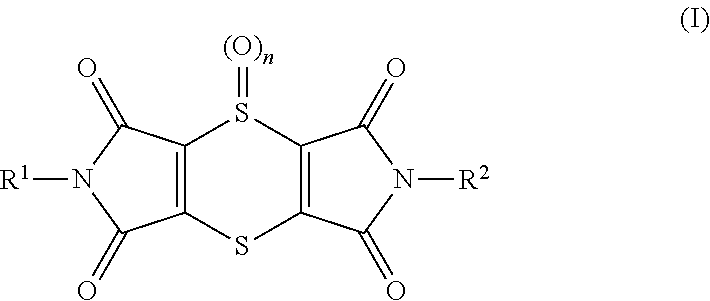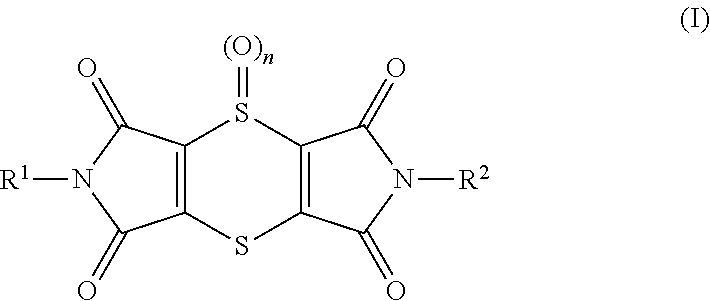Active compound combinations
a technology of active compounds and combinations, applied in the field of active compound combinations, to achieve the effects of reducing the application rate of components (a) and (b), extending the range of action, and high degree of phytopathogen control
- Summary
- Abstract
- Description
- Claims
- Application Information
AI Technical Summary
Benefits of technology
Problems solved by technology
Method used
Image
Examples
use examples
Example A
Phytophthora Test (Tomatoes) / Protective
[0197]Solvent: 24.5 parts by weight of acetone[0198]24.5 parts by weight of dimethylacetamide
Emulsifier: 1 part by weight of alkylaryl polyglycol ether
[0199]To produce a suitable preparation of active compound, 1 part by weight of active compound is mixed with the stated amounts of solvent and emulsifier, and the concentrate is diluted with water to the desired concentration. To test for protective activity, young plants are sprayed with the preparation of active compound at the stated rate of application. After the spray coating has dried on, the plants are inoculated with an aqueous spore suspension of Phytophthora infestans. The plants are then placed in an incubation cabinet at approximately 20° C. and a relative atmospheric humidity of 100%. The test is evaluated 3 days after the inoculation. 0% means an efficacy which corresponds to that of the control, while an efficacy of 100% means that no disease is observed. The table below ...
example b
Plasmopara Test (Grapevines) / Protective
[0200]Solvent: 24.5 parts by weight of acetone[0201]24.5 parts by weight of dimethylacetamide
Emulsifier: 1 part by weight of alkylaryl polyglycol ether
[0202]To produce a suitable preparation of active compound, 1 part by weight of active compound is mixed with the stated amounts of solvent and emulsifier, and the concentrate is diluted with water to the desired concentration. To test for protective activity, young plants are sprayed with the preparation of active compound at the stated rate of application. After the spray coating has dried on, the plants are inoculated with an aqueous spore suspension of Plasmopara viticola and then remain for 1 day in an incubation cabinet at approximately 20° C. and a relative atmospheric humidity of 100%. The plant is subsequently placed for 4 days in a greenhouse at approximately 21° C. and a relative atmospheric humidity of approximately 90%. The plants are then misted and placed for 1 day in an incubation...
example c
Sphaerotheca Test (Cucumbers) / Protective
[0203]Solvent: 24.5 parts by weight of acetone[0204]24.5 parts by weight of dimethylacetamide
Emulsifier: 1 part by weight of alkylaryl polyglycol ether
[0205]To produce a suitable preparation of active compound, 1 part by weight of active compound is mixed with the stated amounts of solvent and emulsifier, and the concentrate is diluted with water to the desired concentration. To test for protect activity, young plants are sprayed with the preparation of active compound at the stated rate of application. After the spray coating has dried on, the plants are inoculated with an aqueous spore suspension of Sphaerotheca fuliginea. The plants are then placed in a greenhouse at approximately 23° C. and a relative atmospheric humidity of approximately 70%. The test is evaluated 7 days after the inoculation. 0% means an efficacy which corresponds to that of the control, while an efficacy of 100% means that no disease is observed. The table below clearly...
PUM
| Property | Measurement | Unit |
|---|---|---|
| time | aaaaa | aaaaa |
| time | aaaaa | aaaaa |
| time | aaaaa | aaaaa |
Abstract
Description
Claims
Application Information
 Login to View More
Login to View More - R&D
- Intellectual Property
- Life Sciences
- Materials
- Tech Scout
- Unparalleled Data Quality
- Higher Quality Content
- 60% Fewer Hallucinations
Browse by: Latest US Patents, China's latest patents, Technical Efficacy Thesaurus, Application Domain, Technology Topic, Popular Technical Reports.
© 2025 PatSnap. All rights reserved.Legal|Privacy policy|Modern Slavery Act Transparency Statement|Sitemap|About US| Contact US: help@patsnap.com



